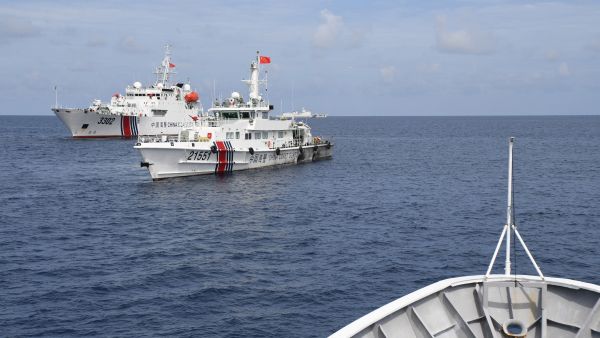ALBAWABA - According to a recent Wall Street Journal study, the U.S. military confronts significant logistical and transportation issues that raise questions about its preparedness in a hypothetical battle with China.
According to the article, in order to fill in any gaps during emergencies, the Transportation Command (TRANSCOM) of the Department of Defense is looking at the idea of incorporating commercial shipping lines into its military supply chain. This assessment coincides with mounting concerns over the antiquated and constrained resources in TRANSCOM's fleet of cargo ships and supply planes, which authorities now consider "insufficient."
The Pentagon estimates that about 90 percent of supplies would have to be transported by sea in the case of a direct battle with China. However, of the 44 government-owned ships that TRANSCOM now uses, 28 will be decommissioned over the course of the next eight years. Logistics planning is made more difficult by the ongoing delays in efforts to replace these aged vessels.
Supply routes become very susceptible targets during times of conflict, therefore the difficulties go beyond resources. According to The Wall Street Journal, which cited previous instances, Ukrainian troops were able to degrade Russian forces by effectively disrupting Russian logistics during Russia's 2022 attack on Kyiv by focusing on supply lines.
A strong logistical network, however, may act as a disincentive, according to the report. If potential enemies believe the United States can quickly organize a large logistical response, they may reconsider going to war.










